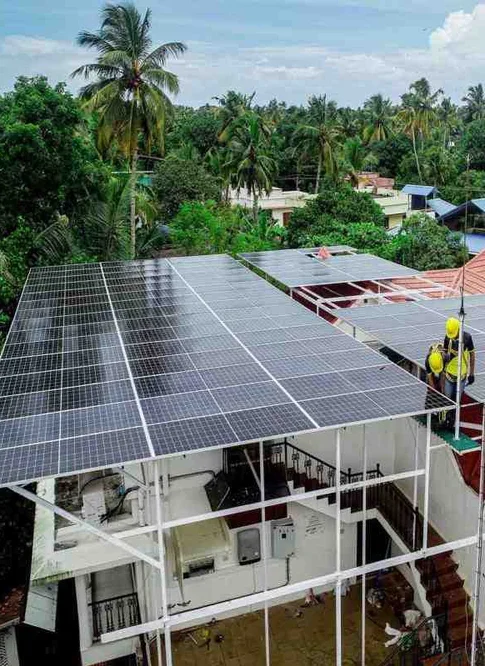FAQ
Have Questions?
Certainly! Here’s a list of frequently asked questions (FAQs) related to solar energy:
Solar energy is derived from the sun’s radiation. It can be converted into electricity or used for heating purposes through the use of solar panels or solar thermal systems.
Solar panels, or photovoltaic cells, convert sunlight into electricity. When sunlight strikes the cells, it generates a flow of direct current (DC) electricity.
A typical solar power system includes solar panels, inverters, racking or mounting structures, and, in some cases, a battery storage system.
Lorem ipsum dolor sit amet, consectetur adipiscing elit. Ut elit tellus, luctus nec ullamcorper mattis, pulvinar dapibus leo. Aliquam suscipit felis a arcu laoreet congue. Habeo nemore appellantur eu usu, usu putant adolescens consequuntur ei, mel tempor consulatu voluptaria. Aliquam suscipit felis a arcu laoreet congue. Usu putant adolescens consequuntur.
Net metering is a billing arrangement that allows solar panel owners to receive credit for excess electricity they generate and feed back into the grid. This credit can be used to offset electricity costs during periods of low sunlight.
Yes, solar panels can still generate electricity on cloudy days, although their efficiency is reduced. They continue to produce some power even in diffuse sunlight.
Solar panels typically have a lifespan of 25 to 30 years. Their efficiency may gradually decline over time, but most manufacturers provide warranties that guarantee a certain level of performance for a specified period.
Many countries offer financial incentives, tax credits, or rebates to encourage the adoption of solar energy. It’s advisable to check with local authorities or energy agencies for available incentives.
On-grid (grid-tied) systems are connected to the electricity grid, while off-grid systems operate independently, relying on battery storage to store excess energy for use during periods of low sunlight.
On-grid solar systems are designed to automatically shut down during a power outage for safety reasons. However, off-grid systems with battery storage can provide power during outages.
Solar panels require minimal maintenance. Periodic cleaning to remove dirt and debris and checking for any physical damage is usually sufficient. It’s advisable to consult the manufacturer’s guidelines.

